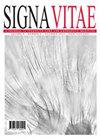Post-surgical analgesia management with transdermal buprenorphine patch on a patient with compartment syndrome after tibia plateau fracture with multiple operations before the end of his rehabilitation
IF 0.6
4区 医学
Q3 EMERGENCY MEDICINE
引用次数: 0
Abstract
Introduction: Buprenorfine is a semisynthetic opioid which is used as a therapeutic substitute of opioid drugs and as medium to strong painkiller in smaller doses for the management of chronic pain. It’s first use goes back in 80’s. The use of buprenorphine as therapeutic substitute was approved in 2002 in USA and 2006 in Europe. The administration of buprenorphrine, in contrast to other opioids, does not provoke euphoria. It binds as an agonist/antagonist to μ and κ receptors of the brain and last up to 72 hours. Compartment syndrome is a serious pathological situation where we have increased pressures within a compartment. Compartment is a group of muscles, blood vessels and nerves which are surrounded by a strong membrane called fascia attached to bone. Fascia cannot be expanded therefore the oedema within a compartment can lead to increased pressures. As a result, it can create muscle, vessel and nerve damage. The increased compartment pressure can block the blood flow in the compartment and lead to lack of oxygen in tissue (ischemia) and cellular death. Patient feels an acute pain, unbearable as described and strong opioids provide moderate pain relief. Purpose of the current study is to evaluate the analgesia and efficiency of buprenorphine patch not only in patients with chronic pain but as post surgical analgesia in patients who suffered compartment syndrome and need multiple operation before the end of the rehabilitation. Case presentation: A male patient, 36 y.o. with no past medical history attend A/E department after a fall from height and intense knee and proximal tibia pain. He suffered from a tibia plateau fracture. Neurovascularly was compromised with absence of pulses in posterior tibial artery, reduced sensation in the anterior compartment of the tibia and the passive movement of the toes triggered excruciating pain. Lower limb vein triplex was performed to exclude DVT. Clinical diagnosis of compartment syndrome was done and the patient was taken to OR where fasciotomy both sides was performed and all four compartments were released. Copious haematoma was evacuated[1] Breivik H, Ljosaa TM, Stengaard-Pedersen K, Persson J, Aro H, Villumsen J, et al. A 6-months, randomised, placebo-controlled evaluation of efficacy and tolerability of a low-dose 7-day buprenorphine transdermal patch in osteoarthritis patients naive to potent opioids., a bridging femur tibia ex fix was applied and the wound left open. The phased closure of the trauma was achieved in four stages within the next 30 days. Outcome and follow-up: Spinal anaesthesia was the preferred method and for the post-op pain management was applied transdermic buprenorphine patch 70mcg in combination with 1 gr three times a day of IV paracetamol. Gradual decrease of buprenorphine dose lasted for the period the wound was open until the final closure and the reduction of the fracture. Acute and continuous pain is constant in the post op period in patients with long bone fractures complicated with compartment syndrome. Most of the times the pain can not be managed with routine analgesia, even with the additional use of opioids. With the application of buprenorphine patch on the specific patient, the pain was not only significantly reduced but also was not in need of any additional painkillers. The Visual Analog Scale (VAS) was 2to 3 the first week and 1 to 2 the second. Discussion: Anaesthetists are familiar with the pain management and their administration methods. Post op analgesia methods and their application is part of the ongoing perioperative pain management. The new semisynthetic opioids offer excellent challenges and opportunities to use and study their field of application not only for the chronic malignant pain but with also for post op analgesia under constant monitoring. It can provide sufficient and safe analgesia in difficult cases such as the tibia plateau fracture in combination with the compartment syndrome.丁丙诺啡透皮贴剂治疗胫骨平台骨折后室间隔综合征患者康复前多次手术的术后镇痛
丁丙诺芬是一种半合成阿片类药物,用作阿片类药物的治疗替代品,并作为小剂量的中至强效止痛药用于慢性疼痛的治疗。它的第一次使用可以追溯到80年代。丁丙诺啡作为治疗替代品于2002年在美国和2006年在欧洲被批准使用。与其他阿片类药物不同,丁丙诺啡的使用不会引起欣快感。它作为激动剂/拮抗剂结合大脑的μ和κ受体,并持续长达72小时。筋膜间室综合征是一种严重的病理情况我们在筋膜间室内压力增加。筋膜室是一组肌肉、血管和神经,它们被附着在骨头上的筋膜所包围。筋膜不能扩张,因此筋膜间室内的水肿可导致压力增加。因此,它会造成肌肉、血管和神经损伤。室压升高会阻碍室内的血液流动,导致组织缺氧(缺血)和细胞死亡。患者感到急性疼痛,如所述难以忍受,强阿片类药物提供中度疼痛缓解。本研究的目的是评价丁丙诺啡贴片不仅对慢性疼痛患者的镇痛效果,而且在康复结束前需要多次手术的筋膜间室综合征患者的术后镇痛效果。病例介绍:一名男性患者,36岁,无既往病史,因从高处坠落,膝盖和胫骨近端剧烈疼痛而就诊于急诊科。他的胫骨平台骨折。神经血管受损,胫骨后动脉脉搏缺失,胫骨前房室感觉减弱,脚趾被动运动引发剧烈疼痛。下肢静脉三联术排除DVT。完成了筋膜室综合征的临床诊断,患者被送往手术室,在那里进行了双侧筋膜切开术,并释放了所有四个筋膜室。大量血肿引流[Breivik H, Ljosaa TM, stengard - pedersen K, Persson J, Aro H, Villumsen J等]。一项为期6个月、随机、安慰剂对照的研究,对初服强效阿片类药物的骨关节炎患者使用低剂量7天丁丙诺啡透皮贴剂的疗效和耐受性进行评估。,应用桥接股骨胫骨外固定术,保持伤口开放。在接下来的30天内,分四个阶段完成了创伤的分阶段闭合。结果和随访:脊髓麻醉是首选方法,术后疼痛管理应用经皮丁丙诺啡贴片70mcg联合1克静脉扑热息痛,每天3次。丁丙诺啡剂量的逐渐减少持续在创面开放期间,直到最终闭合和骨折复位。长骨骨折合并骨间室综合征患者术后持续急性疼痛是常见病。大多数情况下,疼痛不能通过常规镇痛来控制,即使额外使用阿片类药物。丁丙诺啡贴片应用于特定患者,不仅疼痛明显减轻,而且不需要任何额外的止痛药。视觉模拟评分(VAS)第一周为2 ~ 3分,第二周为1 ~ 2分。讨论:麻醉师熟悉疼痛管理及其给药方法。术后镇痛方法及其应用是围手术期疼痛管理的一部分。新型半合成阿片类药物不仅为慢性恶性疼痛的治疗提供了良好的挑战和机遇,也为术后持续监测镇痛提供了良好的应用前景。对于胫骨平台骨折合并筋膜间室综合征等疑难病例,可提供充分、安全的镇痛。
本文章由计算机程序翻译,如有差异,请以英文原文为准。
求助全文
约1分钟内获得全文
求助全文
来源期刊

Signa Vitae
医学-急救医学
CiteScore
1.30
自引率
9.10%
发文量
0
审稿时长
3 months
期刊介绍:
Signa Vitae is a completely open-access,peer-reviewed journal dedicate to deliver the leading edge research in anaesthesia, intensive care and emergency medicine to publics. The journal’s intention is to be practice-oriented, so we focus on the clinical practice and fundamental understanding of adult, pediatric and neonatal intensive care, as well as anesthesia and emergency medicine.
Although Signa Vitae is primarily a clinical journal, we welcome submissions of basic science papers if the authors can demonstrate their clinical relevance. The Signa Vitae journal encourages scientists and academicians all around the world to share their original writings in the form of original research, review, mini-review, systematic review, short communication, case report, letter to the editor, commentary, rapid report, news and views, as well as meeting report. Full texts of all published articles, can be downloaded for free from our web site.
 求助内容:
求助内容: 应助结果提醒方式:
应助结果提醒方式:


